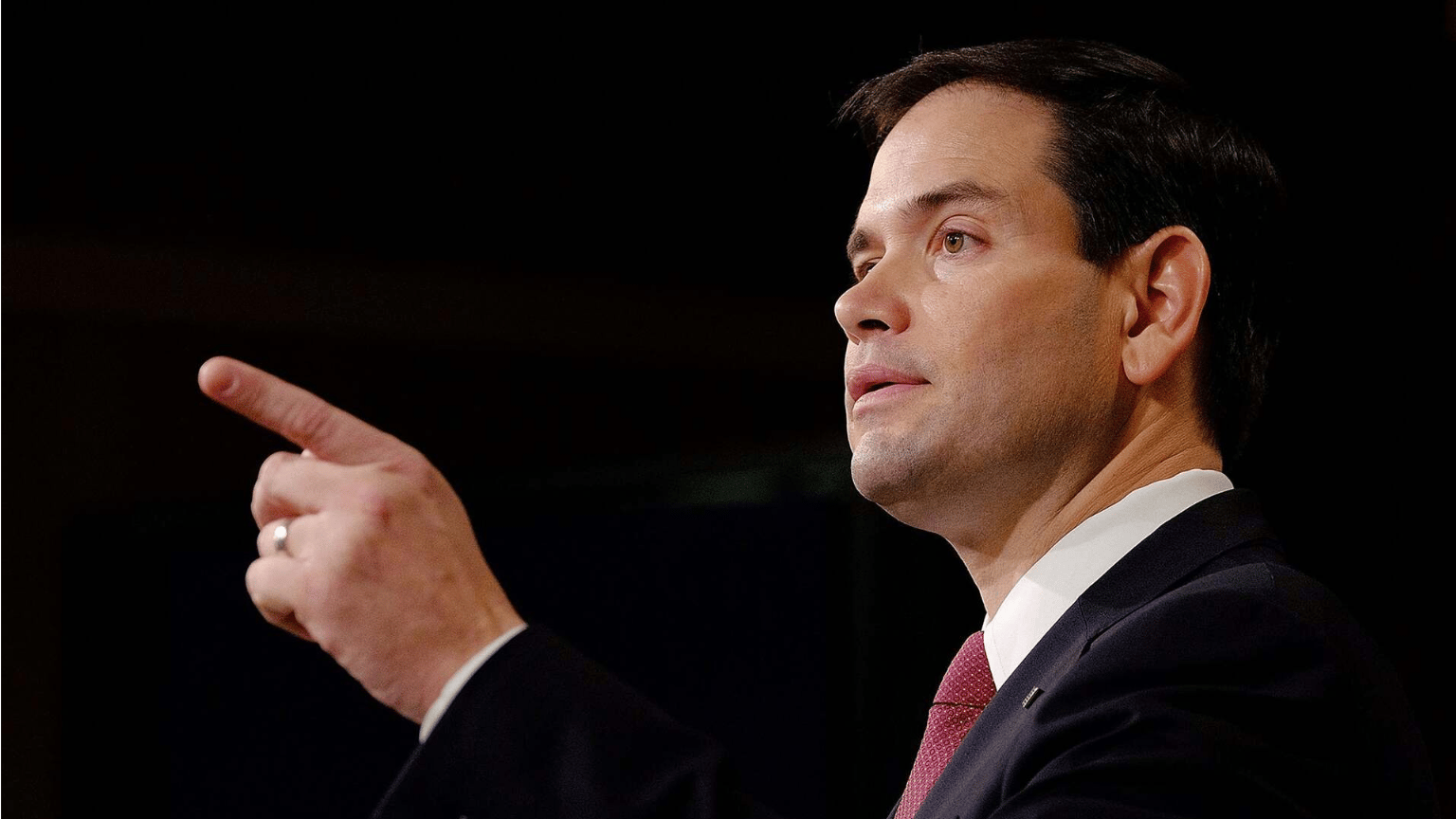
Hi Global Recap readers,
Our first story today would not have been considered "geopolitical" a few years ago. However, especially in the US, gender ideology has become a major political issue and appears to be gaining traction in other countries as well.
Now, we've reached a point where this is a real headline. 👇
🌐 WORLD
Fast Scroll News
🇩🇪 Neo-Nazi Switches Gender

Germany just let a convicted neo-Nazi switch gender and serve time in a women’s prison, triggering backlash over the country’s new “self-determination” law.
Identity: Sven Liebich, a far-right agitator known for hate speech and Holocaust denial, now legally goes by Marla-Svenja.
Sentence: He received 18 months for incitement and defamation, including targeting Jewish groups and political opponents.
Policy: Under Olaf Scholz’s 2024 reforms, Germans can change legal gender by self-declaration—no medical proof required.
Criticism: Opponents say the law lacks safeguards and could be exploited by violent offenders seeking lenient conditions.
Placement: Authorities confirmed Liebich will be housed in a women’s facility starting this month.
📌 Context: Germany’s “self-ID” law was designed to support trans rights, but critics argue it opens loopholes for abuse, especially in criminal justice settings.
🇺🇸 US Kills ISIS Leader

A US Special Operations team just eliminated two top ISIS operatives in northern Syria.
Commander: The main target was assessed as the top candidate to lead ISIS’s Syria branch and had been plotting attacks across Syria and Iraq.
Financier: The second target was the key money man behind ISIS operations in Syria and Iraq, including logistics and recruitment.
Scope: Both men were actively planning strikes against the new Syrian government and US assets.
Casualties: No US, coalition, or civilian lives were lost during the mission.
Aftermath: The Pentagon hailed it as a “successful operation” in the ongoing fight against a group defeated territorially in 2019.
This reminds me of 2016, when the Pentagon insisted US special forces weren’t on the front lines against ISIS. Yet in 2019, they famously eliminated al-Baghdadi in Syria.
📌 Context: Since ISIS lost its last “caliphate” zones in 2019, US counterterrorism teams have kept up targeted strikes to prevent the group from rebuilding and threatening regional stability.
🇷🇴 NATO Jets Scrambled

Two German Typhoons were deployed to Romania’s border after Russia launched 93 drones and 2 ballistic missiles into Ukraine overnight.
Strike: Russia hit 20 Ukrainian locations, including Izmail, where drones ignited fires at infrastructure sites and injured at least one person.
Response: Romania’s Defense Ministry deployed German fighters to Tulcea County to monitor airspace near the border. No airspace violations were reported.
Fallout: Zelenskyy called for “new sanctions and tariffs” and demanded stronger security guarantees from the US and Europe.
📌 Context: NATO’s Enhanced Air Policing began in 2014 after Russia annexed Crimea. Romania hosts German fighters as part of that mission, especially near Ukraine’s volatile southern border.
🇵🇱 Poland Blames Russia

A Russian drone exploded in a cornfield near Osiny, Poland, early Wednesday, and Warsaw is calling it a deliberate provocation timed to sabotage Ukraine peace talks.
Timing: The crash happened around 2 a.m. on August 20, just as negotiations to end the war in Ukraine were gaining traction.
Damage: The blast shattered windows in nearby homes but caused no injuries. Police found scorched metal and plastic at the site.
Accusation: Defense Minister Władysław Kosiniak-Kamysz said, “Russia is provoking us once again,” warning NATO not to ignore the signal.
Airspace: Poland’s military confirmed no recorded violations from Ukraine or Belarus that night, ruling out accidental intrusion.
🇺🇸 US Sanctions ICC Officials

Secretary of State Marco Rubio just slapped sanctions on four International Criminal Court (ICC) judges and prosecutors, freezing any assets they hold in US jurisdictions.
Targets: Judges Kimberly Prost (Canada) and Nicolas Guillou (France), plus prosecutors Nazhat Shameem Khan (Fiji) and Mame Mandiaye Niang (Senegal).
Trigger: Guillou greenlit arrest warrants for Netanyahu and ex-defense minister Yoav Gallant over Gaza. Prost backed a now-dropped 2017 probe into alleged US war crimes in Afghanistan post-9/11.
Action: All US‐based assets frozen and visa bans imposed, announced by Secretary of State Marco Rubio on August 20, 2025.
Reactions: The ICC calls it a "flagrant attack" on judicial independence, and the UN warns of a dangerous precedent; France expressed dismay while Israel hailed the move.
History: The US has never joined the ICC and has long resisted its authority, especially when it probes American troops or Israeli officials. Trump first sanctioned ICC figures in 2020, but Biden rescinded those measures in 2021.

🇨🇩 DEMOCRATIC REPUBLIC OF CONGO
Trump’s Congo
Peace Deal Falters

The ink’s barely dry on Trump’s June peace agreement, and already M23 rebels backed by Rwanda have massacred over 140 villagers in eastern Congo. The UN says it’s actually more than double that. The violence is escalating again, and the deal looks more like a press release than a plan.
The Washington Agreement

Let’s rewind to June 27, when Trump hosted Congolese and Rwandan officials in D.C. for a peace signing.
Trump announced a peace agreement between Rwanda and Congo, saying “we just ended a war that was going on for 30 years.”
The deal required Rwanda to withdraw troops from Congo and Congo to dismantle the Democratic Forces for the Liberation of Rwanda (FDLR) militia.
Trump claimed he “settled wars that have gone on for 35 years,” citing “a lot of machete deaths.”
The agreement was signed by Rwanda’s Foreign Minister Olivier Nduhungirehe and Congo’s Thérèse Kayikwamba Wagner.
However, the deal did not include M23, which is known to be a Rwandan-backed rebel group responsible for years of violence in eastern Congo. Rwanda denies any connections to the group.
The July Massacres

On July 14 in Beni, Congo, families of soldiers slain by M23 rebels set bonfires ablaze in protest.
But by mid-July, Human Rights Watch and the UN were reporting mass killings in North Kivu province.
Between July 10 and 30, M23 rebels killed at least 141 villagers, mostly ethnic Hutus, across 14 villages.
The UN later said the death toll was at least 319, based on firsthand accounts.
Rwandan soldiers reportedly participated in the attacks, though both Rwanda and M23 deny it.
📌 Context: M23 is a Tutsi-led rebel group with historic ties to Rwanda. The Democratic Forces for the Liberation of Rwanda (FDLR), targeted in the attacks, is a Hutu militia formed after Rwanda’s 1994 genocide.
Evidence Pile
According to the Washington Post, photos, videos, and interviews leave little room for doubt. The brutality was systematic.
One video shows five decapitated bodies with hands bound and blindfolds. Another shows corpses with machete wounds.
A woman said she was marched to a river with 70 others; fighters executed people on the banks.
Locals say M23 now bans farming “on pain of death,” and wounded survivors are too afraid to seek treatment.
Doha Talks and New Clashes

Peace mediator Sumbu Sita Mambu of the DRC (left), Qatar’s Mohammed al-Khulaifi (center) and M23’s Benjamin Mbonimpa (right) in Doha, July 19, 2025.
Even as the ink dried on a second agreement in Qatar, fighting resumed.
On July 28, Congo and M23 signed a “declaration of principles” in Doha aimed at a ceasefire.
But by August, Congo’s army accused M23 of “incessant attacks” violating both accords.
M23 responded by accusing Congo of “systematic, criminal attacks” using drones and artillery.
Diplomatic Fallout
This clearly shows that while framework agreements might look good on paper, the real challenge is putting procedures in place that actually build lasting peace. And now, Congo’s foreign ministry is openly casting doubt on the peace process.
Officials said the massacres “cast a grave shadow” over the Washington and Doha agreements.
The region remains volatile, with fears of a broader war still looming.
Trump’s Effectiveness

Many news outlets are having a field day bashing Trump, as he continues to use this conflict as an example of his ability to settle wars, even though reports show there’s been “virtually no change on the ground.”
However, this doesn’t mean Trump is completely ineffective at peacemaking—far from it. For example, the Cambodia-Thailand and India-Pakistan deals appear to be holding at the moment.
Also, Trump has proven to be an effective middleman, often playing the “bad cop” to help broker resolutions. Many conflicts require an off-ramp and a face-saving excuse to de-escalate, since parties rarely want to appear “weak” by initiating peace talks.
Whether for legacy or optics, Trump seems very active in trying to broker peace, rather than starting new conflicts by ramping up his rhetoric. When he does use harsh language, it’s often to intimidate others into backing down. This approach works for Trump, because others seem to genuinely believe he’ll follow through on his threats—for better or worse.


